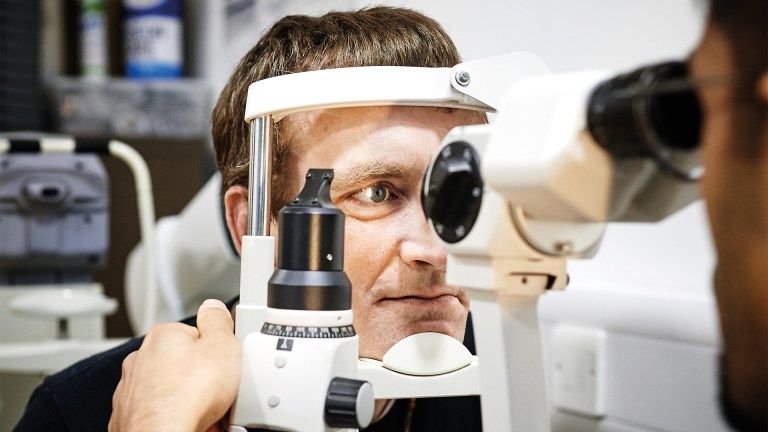This is one of the great frustrations for professionals working in the field. While those in the villages know it exists, leprosy has disappeared from the purview of the political establishment. It is an invisibility echoed globally – local staff at The Leprosy Mission, an NGO dedicated to the disease, tell me that one of the hardest things for them is fundraising in a world that thinks the disease is long gone. Though not nearly as contagious as mythology dictates, and with a cure available since 1981, what eradication efforts there are find themselves hampered by such ignorance.
Nor does leprosy have the cachet of the huge celebrity-endorsed charity campaigns that have successfully bankrolled dramatic drops in HIV prevalence. One Mozambican patient-activist I spoke to put it more bluntly than the charity might: “We can’t compete with the glamour of diseases that also affect rich white people in the west.”
Get the latest news and insight into how the Big Issue magazine is made by signing up for the Inside Big Issue newsletter
With the slashing of international aid budgets by western governments lurching to the right, it is likely that patients unlucky enough to be affected by forgotten diseases or disability will suffer the most. Keir Starmer’s reduction of the international development budget to just 0.3% of the UK gross national income earned a stinging response from the chief executive of The Leprosy Mission.
“I am stunned by the cruel act of taking aid from the world’s poorest people,” Peter Waddup said. “We do not need to follow president Trump’s lead. We have to question what sort of world we live in when it is permissible to neglect the desperate needs of everyone outside of our home nation.”
There is every possibility however that diseases once regarded as ‘tropical’ could come to the UK too. Mycobacterium leprae, transmitted via droplets in sneezes or coughs, survives perfectly well whatever the weather, though most people possess a natural immunity. With rising temperatures, however, diseases that are mosquito-borne, are becoming an increasing issue in Europe.
In May, West Nile virus, which has no current vaccine or cure, was discovered in UK mozzies for the first time. The levels are low enough that an outbreak is unlikely, but the UK Health Security Agency warned that “in the wake of climate change, mosquito-borne diseases are expanding to new areas”. Last year –the hottest on record – France and Italy registered more than 1,400 locally acquired cases of the virus.
The dengue emergency, a disease little reported outside the global south, is even more acute. Global cases have exploded. In 2023 there were 4.1 million new infections across the Americas, last year that rose to 13 million; Europe registered 300 dengue cases in 2024, compared to 275 over the previous 15 years.
None of these diseases are sexy, none are likely to commandeer celebrity support and gala dinners. Yet they affect many of those who find themselves in nurse Nunes’s queue each morning. The richer nations in the north should direct more money into overseas development, not less; more money into research programmes for so-called ‘rare’ diseases, not less. Private philanthropy won’t fill the gap.
We should be doing this because it’s the right thing to do, but even aside from this ethical imperative, we should be doing it for the simple fact that as the Earth warms, the health issues affecting the global south are likely to be those affecting Europe in the future too.
Outcast: A History of Leprosy, Humanity and the Modern World by Oliver Basciano is out on 19 June (Faber, £20). You can buy it from the Big Issue shop on bookshop.org, which helps to support Big Issue and independent bookshops.
Do you have a story to tell or opinions to share about this? Get in touch and tell us more. Big Issue exists to give homeless and marginalised people the opportunity to earn an income. To support our work buy a copy of the magazine or get the app from the App Store or Google Play.







